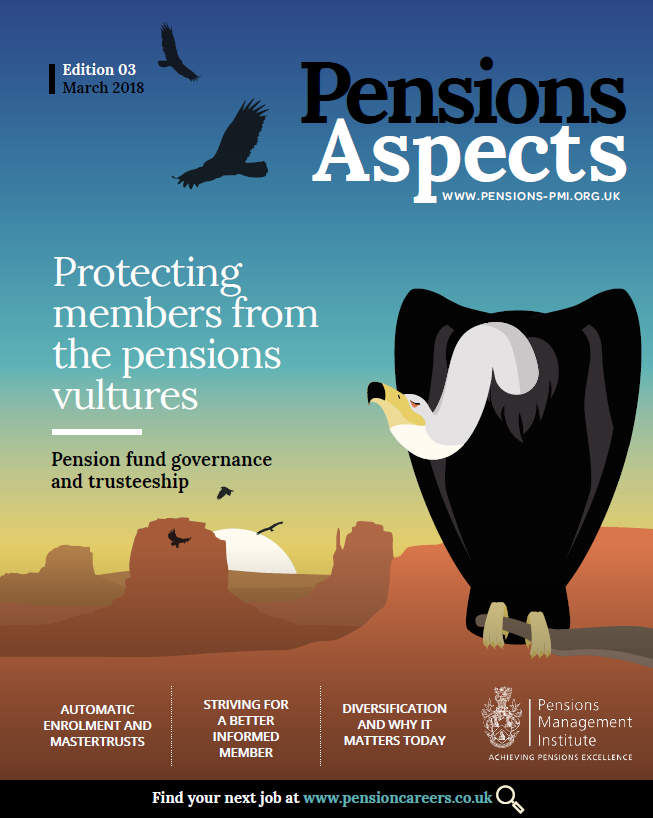It’s Groundhog Day again…
So once again we witness a high-profile corporate failure. Once again there are under-funded Defined Benefit schemes. And once again there is the inevitable finger-pointing and the solemn promise to prevent anything comparable from happening again.
The collapse of Carillion was characterised by an additional complication. Many of the members whose accrued benefits have been compromised had previously been employed in the public sector, where any threat to accrued rights would have been out of the question. Following the TUPE transfer arising from a series of privatisations, many had elected not just to accrue pension benefits from the time of transfer but also to transfer rights accrued previously.

Pensions Aspects March 2018
Carillion’s post mortem has already begun, and is being conducted very publicly. Whilst the principal focus has inevitably been on the company’s directors, there has also been widespread criticism of both the Pensions Regulator and the trustees of the various Carillion schemes. Much of the commentary has been unfair, and has failed to recognise correctly the role and responsibility of trustees and the Regulator. However, it has brought to the public’s attention just how complicated and demanding the role of a trustee can be.
Over the past few decades, trusteeship has evolved into an intensely demanding role. The trustee board may well be managing a scheme with liabilities which exceed the market capitalisation of its sponsor. Trustees must be expert negotiators: having assessed the strength of the employer covenant, they will seek to maximise employer contribution rates to repair a deficit whilst not compromising the sponsor’s continued viability. They must comply with an increasinglycomplicated compliance regime which exposes them to severe sanctions should they fail to meet expected standards. They must be able to evaluate recommendations from a range of different advisers and be expected to challenge advice if they consider it inappropriate for their scheme.
And yet most of the UK’s pension trustees are amateurs. Whilst there is a growing role for professional trustees, most pension trustees in the UK carry out their work on an essentially part-time and unpaid basis. They are in the role because they have been appointed to it by the scheme sponsor or nominated by the scheme membership. There remains no formal qualification required of them; the only statutory requirement being the Trustee Knowledge and Understanding (TKU) requirements arising from the Pensions Act 2004.
Whilst there is a growing role for professional trustees, most pension trustees in the UK carry out their work on an essentially part-time and unpaid basis.
It is surely inevitable that the Regulator should have introduced the 21st Century Trusteeship initiative. As the role becomes increasingly demanding, it is right that trustees be able to demonstrate that they have the appropriate skill sets to cope with what is required of them. In future, professional trustees will no doubt have a much greater part to play in the stewardship of the UK’s pension schemes. However, not all employers are in a position to appoint a professional. Lay trustees will continue to dominate for the foreseeable future, and it is right that there be a focus on ensuring that they remain adequately skilled for their role.
At this stage, it is not clear precisely what the Regulator will require of trustees as a result of the 21st Century Trusteeship investigation. It seems reasonable however to expect that there will be a far greater emphasis on trustee education. This is likely to extend beyond traditional technical skills and to focus more on ‘soft’ skills such as negotiation and problem solving.
PMI has played a central role in trustee education since the body was founded in 1976. We have always understood the importance of providing trustees with the skills required for their crucially important role. The Trustee Group continues to provide vital educational support for trustees, and in the coming months we will be holding a number of events which address the most pressing issues facing trustees today. Whatever the future may hold for trusteeship, it is guaranteed that PMI will play the principal part in providing first class educational support.
Last update: 26 February 2021
You may also like:






